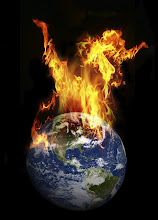“Mother Culture could accept the fact that mankind’s home is not the center of the universe. She could accept the fact that man evolved from the common slime. But she will never accept the fact that man is not exempt from the peace-keeping law of the community of life. To accept that would finish her off.” (Quinn 144)
“As you tell it, the birth of man was a central event –indeed the central event -in the history of the cosmos itself. From the birth of man on, the rest of the universe ceases to be of interest, ceases to participate in the unfolding drama…The Takers regard the world as a sort of human life-support system, as a machine designed to produce and sustain human life.” (Quinn 59)
"This Law that you so admirably describes defines the limits of competition in the community of life. You may compete to the full extent of your capabilities, but you may no hunt down your competitors or destroy their food or deny them access to food. In other words, you may compete, but you may not wage war." (Quinn 129)
Ishmael has probably been one of the most influential novels I have ever read. Reading it changed the way I view the world in which I live and how I interact with it. In terms of biology, it gave me a new way to think about how one organism affects all others. The third quote I listed above reminded me of what I read in Gonick and Outwater's The Cartoon Guide to the Environment about energy consumption and trophic levels. Organisms consume energy as either producers (heterotrophs) primary, secondary or tertiary consumers. Energy moves through this cycle consistently and, when undisturbed, is maintained in balance. Humans, or Takers, as Quinn calls us, acquire more energy from the Earth than we are allotted, and have become unfair competition to the ecosystems of this planet.
In terms of the world in which I live in, I learned how easily Mother Culture has convinced us that we have some sort of ownership of the world. In the novel Quinn touches upon the fact that man believes himself to be a superior being and, like the second quote above states, that the Earth was made for man and not the other way around. This sense of ownership is what has allowed man to believe that he can do as he wants with the world. The consequences of this sense of ownership of the world has been a severe depletion of biodiversity and global warming.
Perhaps what was most fulfilling about reading this novel was what I learned about myself. As much as I am environmentally "aware" and care for all of the living creatures on this planet, I still have this sense that I, as a human, am superior to other living organisms. This belief stems from the knowledge that I am self aware, and that I have 'superior' cognitive abilities but in Ishmael, the mentor that opens the reader's eyes happens to be a Gorilla. Yes, this is a work of fiction, but I cannot say with one hundred percent certainty that a worm does not contemplate it's every day existence. There is no true way to measure that sort of intelligence, and the abilities that I do have were acquired by evolution, a process controlled by a force which I can comprehend, but not control. Man may understand how the world's cycles work, but at least the worm has enough sense not to destroy the only environment in which it can survive.

No comments:
Post a Comment